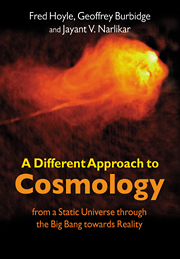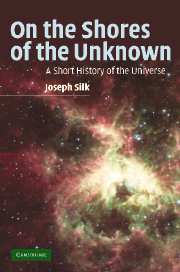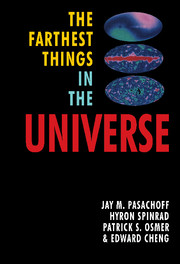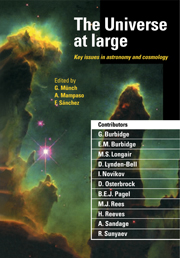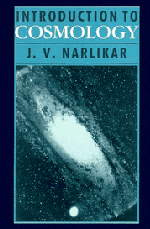A Different Approach to Cosmology
This is a different kind of book about cosmology, a field of major interest to professional astronomers, physicists, and the general public. All research in cosmology adopts one model of the universe, the hot big bang model. But Fred Hoyle, Geoffrey Burbidge and Jayant Narlikar take a different approach. Starting with the beginnings of modern cosmology, they then conduct a wide ranging and deep review of the observations made from 1945 to the present day. Here they challenge many conventional interpretations. The latter part of the book presents the authors' own account of the present status of observations and how they should be explained. The controversial theme is that the dependency on the hot big bang model has led to an unwarranted rejection of alternative cosmological models. Writing from the heart, with passion and punch, these three cosmologists make a powerful case for viewing the universe in a different light.
- Great distinction and prestige accorded to the three authors
- Sets out the case that the Big Bang model of the universe is wrong
- Challenges the central assumptions of modern cosmology
Reviews & endorsements
"Professor Sir Fred Hoyle, Britain's greatest living astrophysicist...launches his most comprehensive attack against the Big Bang theory, in a book with the archly subversive title A Different Approach to Cosmology...when Hoyle makes a cosmic pronouncement, it is invariably worth hearing...Together with two other respected astrophysicists, Hoyle systematically reviews the evidence for the Big Bang theory, and gives it a good kicking...it's hard not to be impressed with the audacity of the demolition job...I can only hope that I possess one-thousandth of Hoyles' fighting spirit when I, like him, have reached my 85th year." The Sunday Telegraph
"The writing style is lively and personal, and the scientific arguments are written in such a way as to be accessible to upper-division undergraduate students in physics and astrophysics. The book is very well referenced and illustrated with suitable and approproate illustrations. Recommended for upper-division undergraduates, graduate students, and two-year technical program students." Choice
"This is a fascinating book, expressing the views of three scientists who choose to go against the conventional cosmological wisdom. It is extremely important for such skepticism to exist and for such books to be written." Physics Today
"The book is a serious and professional contribution to scientific cosmology." Sky & Telescope
"Throughout the last few decades, Fred Hoyle, Geoffrey Burbidge, and Jayant Narlikar have done the cosmology community a great service by developing and defending a serious alternative to Big Bang models of cosmic origins. A Different Approach to Cosmology is a summary of their work...by elucidating one of the hot Big Bang's competitors, the authors provide a good educational exercise for any graduate student interested in fundamental cosmology." Science
Product details
September 2005Paperback
9780521019262
372 pages
244 × 170 × 20 mm
0.59kg
73 b/w illus.
Available
Table of Contents
- Preface
- 1. Introduction
- 2. Early relativistic cosmology
- 3. The observational revolution
- 4. The observational trail 1931, the determination of H0 and the age dilemma
- 5. Changing times 1945–1965: New techniques and new people
- 6. The extension of the redshift apparent magnitude diagram to faint galaxies 1956–1995
- 7. The classical steady state cosmological model and its observational tests
- 8. The cosmic microwave background, an historical account
- 9. The origin of the light elements
- 10. A new primordial calculation of Y and D/H
- 11. The new observational evidence and its interpretation: (a) quasi-stellar objects and redshifts
- 12. The new observational evidence and its interpretation: (b) ejection phenomena and energetics
- 13. Modern Friedmann cosmology
- 14. Standard cosmology
- 15. New cosmological models
- 16. The observational evidence explained in terms of the quasi-steady state model
- 17. The intrinsic redshift problem
- 18. Creation centers and black holes
- 19. Modern observations of faint galaxies and related objects
- 20. Large scale distribution of matter
- 21. A brief account of the radiation fields in the universe: the observations and their interpretation
- 22. Summary
- 23. Some unsolved problems.

